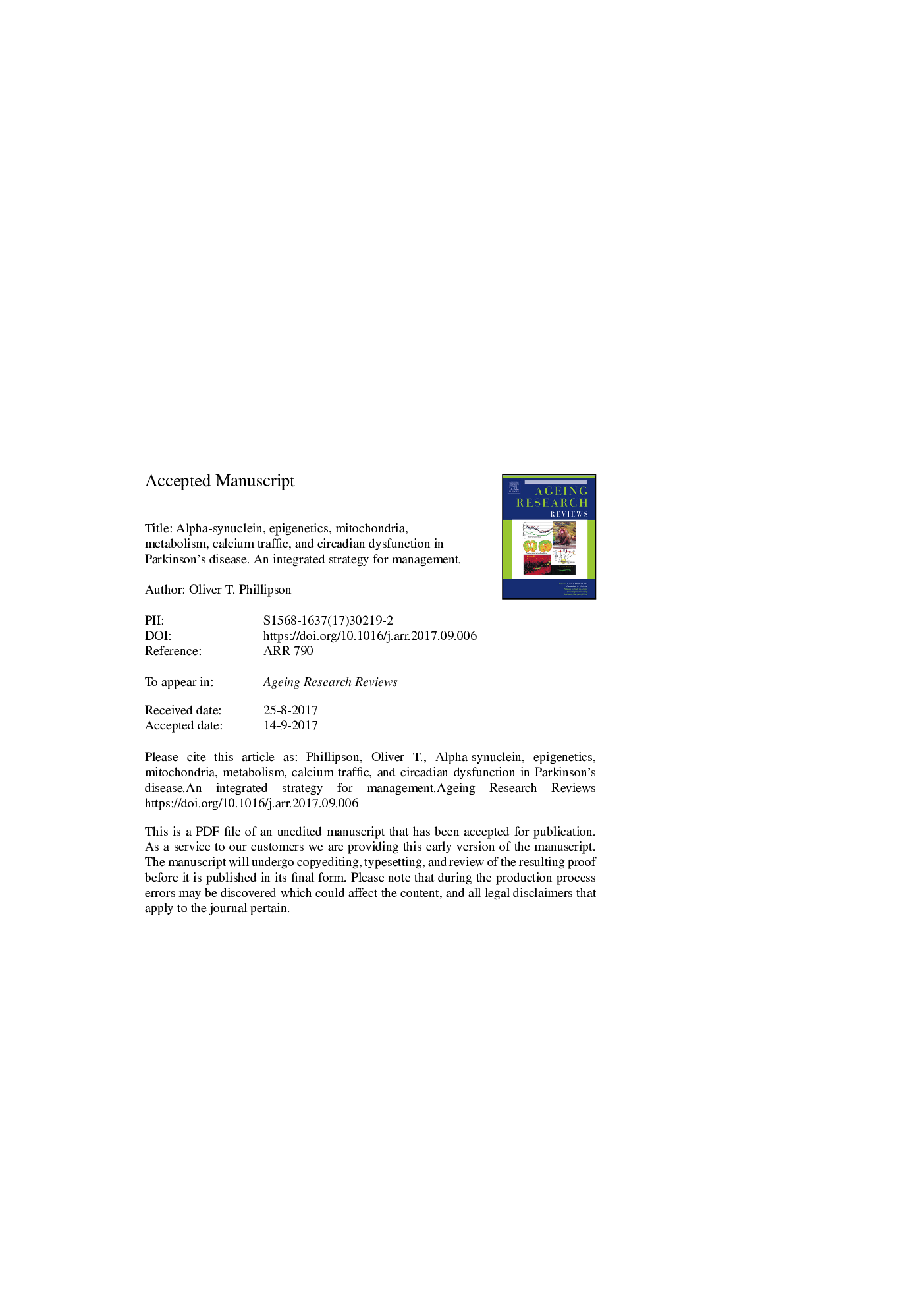| Article ID | Journal | Published Year | Pages | File Type |
|---|---|---|---|---|
| 5500577 | Ageing Research Reviews | 2017 | 55 Pages |
Abstract
The motor deficits which characterise the sporadic form of Parkinson's disease arise from age-related loss of a subset of dopamine neurons in the substantia nigra. Although motor symptoms respond to dopamine replacement therapies, the underlying disease process remains. This review details some features of the progressive molecular pathology and proposes deployment of a combination of nutrients: R-lipoic acid, acetyl-l-carnitine, ubiquinol, melatonin (or receptor agonists) and vitamin D3, with the collective potential to slow progression of these features. The main nutrient targets include impaired mitochondria and the associated oxidative/nitrosative stress, calcium stress and impaired gene transcription induced by pathogenic forms of alpha- synuclein. Benefits may be achieved via nutrient influence on epigenetic signaling pathways governing transcription factors for mitochondrial biogenesis, antioxidant defences and the autophagy-lysosomal pathway, via regulation of the metabolic energy sensor AMP activated protein kinase (AMPK) and the mammalian target of rapamycin mTOR. Nutrients also benefit expression of the transcription factor for neuronal survival (NR4A2), trophic factors GDNF and BDNF, and age-related calcium signals. In addition a number of non-motor related dysfunctions in circadian control, clock genes and associated metabolic, endocrine and sleep-wake activity are briefly addressed, as are late-stage complications in respect of cognitive decline and osteoporosis. Analysis of the network of nutrient effects reveals how beneficial synergies may counter the accumulation and promote clearance of pathogenic alpha-synuclein.
Related Topics
Life Sciences
Biochemistry, Genetics and Molecular Biology
Ageing
Authors
Oliver T. Phillipson,
